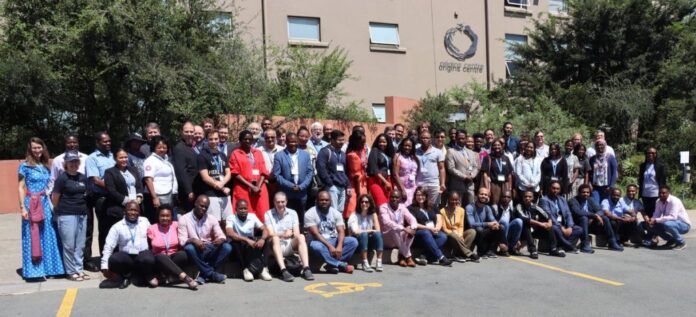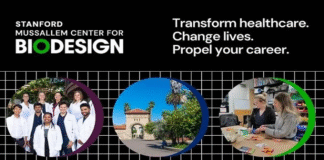The African Astronomical Society (AfAS) convened its 2024 annual conference in Marrakech, Morocco, from April 15 to 20, 2024. The event was co-organised by Cadi Ayyad University and the Oukaimeden Observatory, with a strong focus on advancing the goals of AfAS and promoting its strategic vision. The conference brought together a diverse group of stakeholders, expert speakers, and dedicated astronomy professionals, fostering a collaborative atmosphere throughout the five-day event.
Conference Themes
The conference aimed to promote astronomy research, outreach, education, and collaboration across Africa. The programme featured 31 sessions, addressing topics ranging from educational outreach and technical sessions on planetary astronomy to updates on various African astronomical organisations and their collaborations with international partners.
Africa-Europe Astronomy Collaborations
A key session centred on the theme of Africa-Europe astronomy collaborations. David Baratoux, Coordinator of the European team for Planetary Scientists and Geologists and Senior Scientist at the French National Research Institute for Sustainable Development, shared his perspectives on the partnership between Europe and Africa in planetary sciences. He noted that despite Africa’s considerable assets in this field, several challenges hinder closer EU-Africa collaboration, such as a lack of integration of some African scientific communities into the global landscape, reliance on external funding, and insufficient understanding of the economic benefits of such collaborations. However, Baratoux highlighted ongoing initiatives to overcome these barriers and to strengthen scientific diplomacy, expand funding opportunities, and create platforms for mutual benefit.
African Initiative for Planetary and Space Science (AFIPS)
Baratoux also discussed the African Initiative for Planetary and Space Science (AFIPS), particularly its first phase (2018-2023), an informal network of African planetary scientists with a shared vision. The initiative achieved significant milestones, including contributions to solar system exploration by Senegal, the establishment of meteor monitoring stations across North and West Africa, and the exploration of impact structures in various African regions. Phase two aims to expand these efforts, involving remote sensing geological mapping of planetary surfaces, impact science, meteorite studies, and space weather research. The goal is to inspire the next generation of African scientists through enhanced training opportunities and research activities.
Square Kilometre Array Observatory (SKAO)
Rob Adam, Managing Director of the Square Kilometre Array Observatory (SKAO), presented on the broader African strategy for deploying remote sensing stations post-2030. He emphasised the importance of the African Very Long Baseline Interferometry Network (AVN), which aims to construct SKA-MID-type antennas and develop a robust training infrastructure. Adam highlighted the ongoing consultation process with SKA member countries to gather their perspectives on expanding SKA’s global presence in Africa. Carla Mitchell, Africa Programme Manager at the South African Radio Astronomy Observatory (SARAO), discussed various initiatives under the African Radio Astronomy Programme and the pillars of the African Programme Strategy. She outlined strategic interventions, such as providing 140 bursaries to partner countries, implementing the VBLI Training Telescope project, and introducing the TART training telescope in collaboration with DARA. These initiatives aim to build a strong foundation for the growth of radio astronomy in Africa.
Advancements in Technology and Infrastructure
Tracy Cheetham, SKA Mid Site Construction Director, provided an update on the SKAO construction process, revealing that contracts totaling EUR 704 million have been awarded so far. The remaining contracts are expected to be finalised within the year. The SKAO is making progress on various projects, with a focus on technical design components and community partnerships. Additionally, she mentioned that by the end of the year, SKA-Low AA.0.5 and SKA-Mid AA0.5 are expected to be completed. The SKA Mid community participation programme is set to engage local stakeholders through initiatives like the SARAO-SKAO Corporate Social Investment Framework and a learnership programme.
African Integrated Observation Systems (AIOS)
David Buckley, Lead Investigator and South African Co-Principal Investigator, updated attendees on the status of the African Integrated Observation Systems (AIOS). He described various science drivers, such as the SALT transient programme, the SAAO’s Intelligence Observatory project, and the BRICS flagship programme. Buckley emphasised the importance of international collaboration in transient/time-domain astronomy and the development of new facilities. He also announced plans to assess the Robotic Optical Transient Search Experiment (ROTSE) telescope at the HESS site in Namibia for use by the AfAS community.
Outreach and Education
The Outreach and Education Committee, led by Duduzile Kubheka and Sally Macfarlane, highlighted their efforts to expand astronomy outreach across Africa. The committee discussed the IAU-OAE Shaw Workshop and teacher training, attracting over 50 participants, many of whom joined the #Africalookup Ambassadors Programme. A new Hack4Dev Framework was announced, including a trainers hackathon followed by regional hackathons. The committee also unveiled a partnership between AfAS and Writers Space Africa and indicated that a Memorandum of Understanding (MoU) was being finalised.
African Network of Women in Astronomy (AfNWA)
The African Network of Women in Astronomy (AfNWA) focused on fostering connections among female researchers, improving their professional skills, and attracting more women to STEM fields. The organisation also worked on outreach efforts, seed grants, and organised meetings. They highlighted upcoming African Women in Astronomy storytelling books scheduled for release during the General Assembly in 2024.
Conference Conclusion
The conference concluded with Professor Melusi Khumalo, Head of the Department of Mathematical Sciences, announcing that the University of South Africa (UNISA) would host the AfAS 2025 conference. This event is scheduled to occur at the University of South Africa/Universiteit van Suid-Afrika, setting the stage for another year of progress in African astronomy.
















 The African Research (AR) Index is a comprehensive scholarly directory and database focused explicitly on journal publishers that publish and disseminate African research.
The African Research (AR) Index is a comprehensive scholarly directory and database focused explicitly on journal publishers that publish and disseminate African research.

